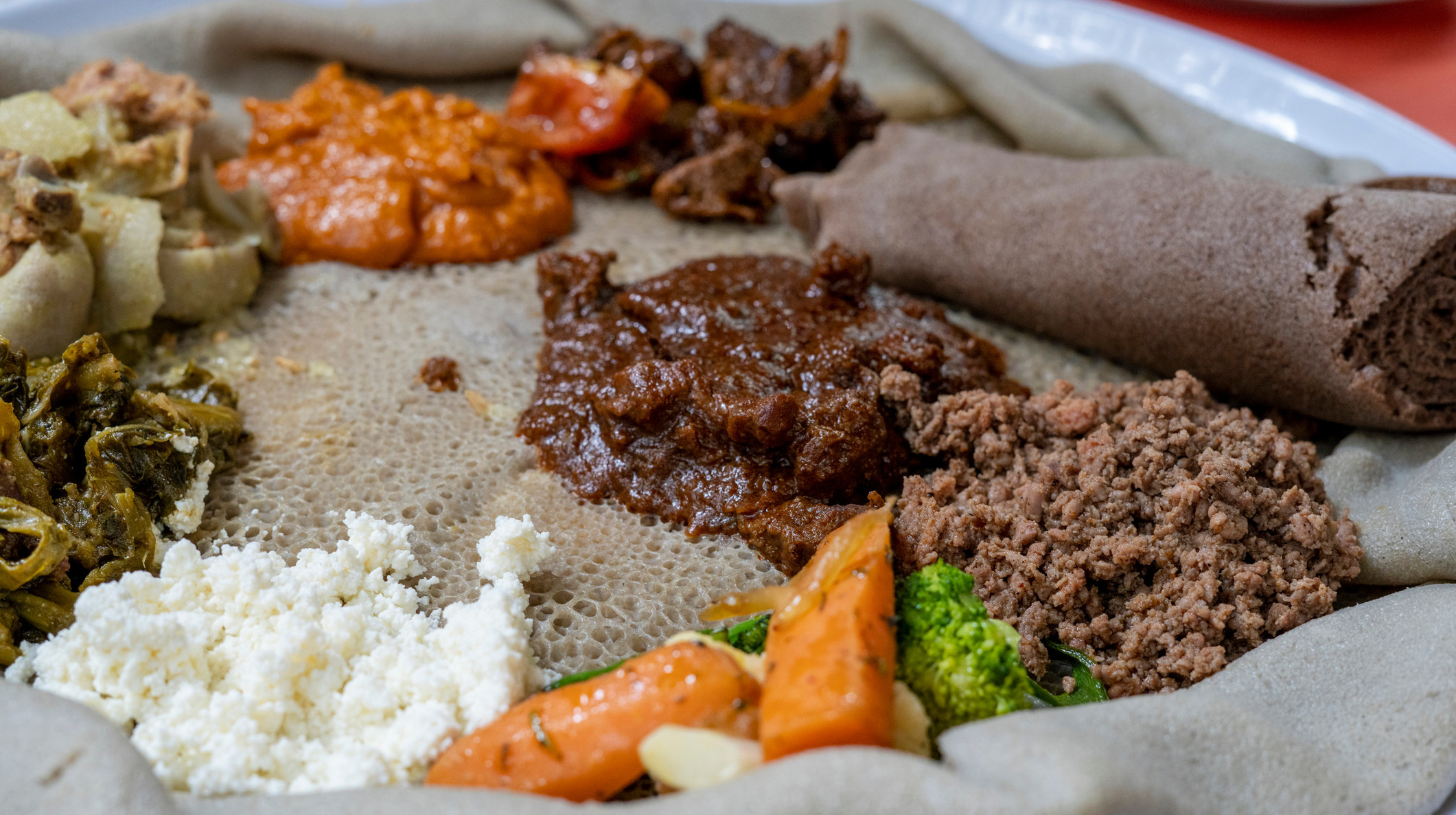Solidarity May Save These San Francisco Restaurants
Like a lot of restaurants, House of Tadu and Tadu Kitchen, two Ethiopian restaurants in San Francisco owned by Selamawet "Nani" Tsegaye and Elias Shawel, have suffered during the pandemic. Tsegaye and Shawel cut back the hours of their ten employees to part-time and Tsegaye worked without wages so they could be paid.
But then, in the wake of the killing of George Floyd by a Minneapolis police officer, writers around San Francisco posted lists of Black-owned businesses that their readers should support. House of Tadu and Tadu Kitchen appeared on many of them, including one list by Soleil Ho, the restaurant critic of the San Francisco Chronicle, that went viral. Since then, Tsegaye told SFGate, business has been up 200% and she's been able to hire all her employees back full-time. Lines for takeout have been 30 people long, and customers have been ordering directly through Tadu's website instead of using third-party delivery apps so all the money goes back to the restaurant. They've also been leaving $20 tips.
"We've been in business for five years and we've never seen this crowd," Shawel said.
Shawel decided to open a restaurant when he was a new immigrant to the U.S. and working as a cab driver. When customers learned he was from Addis Ababa, they would ask him to recommend Ethiopian restaurants, but he realized there were none in San Francisco that met his standards. So he and Tsegaye opened their own seven-table place in 2014 and named it after his grandmother. They opened House of Tadu, a second, larger location, three years later.
Except it wasn't actually that simple.
"For [House of Tadu], we knew we wouldn't get a loan from a conventional bank due to the color of our skin," Tsegaye said. "And we tried and we didn't get it. We went through a nonprofit."
Tsegaye, who moved to the U.S. from Ethiopia as a teenager, realized that inequality was part of life in this country and that she would have to get ahead by going around institutions, like banks, that white people take for granted. "We always knew we're a minority-owned business and we have to find someone who is helping our kind of business," she said. "In a way that's survival. You have to do it and then you do it so much and you don't even realize you're doing it."
Although her business is doing well now, she doesn't want to pass that lesson on to her and Shawel's children. "For my kids, I don't want them to have to be calculative," she said. "I don't want them to have to go around the system. They don't have to be a second[-class] citizen in their own country. I have to fight for them."
